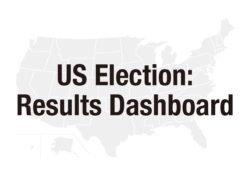EDITORIAL | System to avoid administrative vacuum must be introduced
12:30 JST, October 11, 2022
There must be downsides to holding an election all over again just because none of the candidates received the legally required minimum number of votes. The ruling and opposition parties should consider corrective measures, including the introduction of runoff elections.
In the Shinagawa Ward mayoral election held on Oct. 2, no candidate received the legally required number of votes, and a rerun will be held. The reason was that six newcomers ran in a tight race and the votes were dispersed among them.
The Public Offices Election Law stipulates that the minimum number of votes legally required to win a mayoral or gubernatorial election is “one-fourth of the total number of valid votes cast,” and if no candidate reaches this number, the election will be held again. This is based on the idea that a person who receives only a small number of votes is unfit to represent a local government.
National elections also have a legally required number of votes to win. For the single-seat constituency segment of House of Representatives elections, a candidate must garner at least one-sixth of the valid votes cast to win a seat.
There have been six cases of repeat elections for local government heads because no candidates earned the required minimum votes, including the 2003 Sapporo mayoral election. The government said the Shinagawa mayoral election is the seventh case.
A rerun should, in principle, be held within 50 days after a period of accepting objections. But in the past, there have been cases of it taking more time. For example, it took five months for the 2017 mayoral election in the city of Ichikawa, Chiba Prefecture, because ballots from the initial vote were counted again in response to objections from voters.
While it is natural to follow careful procedures in elections because they are the foundation of democracy, a prolonged period without a mayor or governor is likely to stall administrative management.
Furthermore, if no candidate receives the legally required minimum number of votes in the rerun, yet another election has to be held. This would be costly, and the confusion could last for a long time.
In 2007, a study group of experts from the Internal Affairs and Communications Ministry compiled a report to seek improvements to this system, saying the “introduction of a runoff election with the top-ranking candidates” should be considered.
The aim of the report was to avoid a prolonged administrative vacuum. A runoff vote would also respect the weight of the votes cast in the initial election.
However, due to the fact that repeat elections are rare, the momentum for legislative revision did not pick up. The fact that the law is inadequate and has not been revised can only be called a failure of the Diet. The ruling and opposition parties need to discuss the issue and come to a conclusion on how rerun elections for mayor and governor should be conducted.
The electoral issues facing local governments do not stop with cases such as the Shinagawa Ward election. There is a serious shortage of people who want to become members of local assemblies.
In 2018 in the village of Showa, Gunma Prefecture, only nine candidates ran for the 12-seat village assembly election, and an unprecedented rerun was held the following year to fill the vacancies.
Unified local elections will be held next spring. Some of the restrictions on assembly members holding side jobs must be eased and their treatment must be improved, in order to increase the number of people who want to become local assembly members.
(From The Yomiuri Shimbun, Oct. 10, 2022)
"Editorial & Columns" POPULAR ARTICLE
JN ACCESS RANKING





